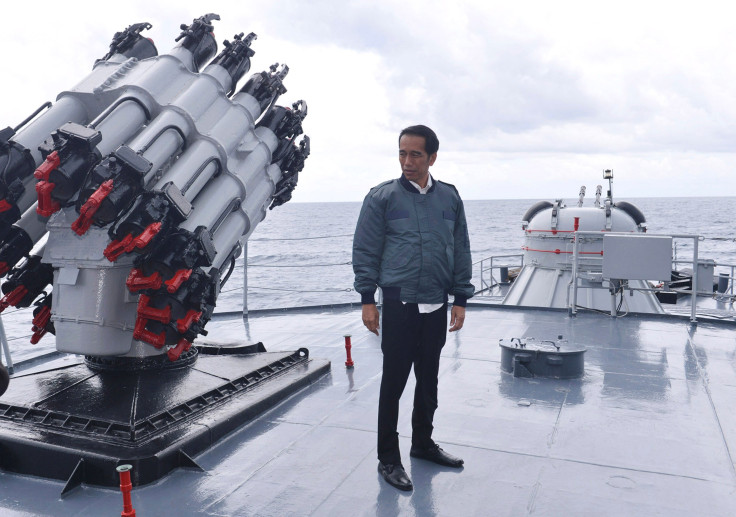Indonesia Embarks On Five-Year, $97 Billion Infrastructure Plan To Revive Economy

KEY POINTS
- The projects will create about 4 million new jobs each year
- Indonesia and Taiwan will build a $12 billion oil refinery and petrochemical project in Balongan
- Indonesia’s gross domestic product growth is slated to be cut in half this year to 2.3%
Indonesia plans to spend $97 billion on scores of infrastructure projects over the next five years to boost the nation’s economy and prepare it for a post-covid-19 recovery.
President Joko Widodo’s government – which manages Southeast Asia’s largest economy – has dozens of new projects in the pipeline, including five industrial estates, 13 dams and five airports, as well as toll roads, railroads, harbors, refineries, gas distribution and irrigation projects.
Airlangga Hartarto, coordinating minister for economic affairs, said the overall project will also include the development of five tourist sites in Lake Toba, Borobudur, Mandalika, Labuan Bajo and North Sulawesi.
Hartarto noted the projects will create about 4 million new jobs each year.
“Even though we are currently facing a pandemic, strategic agendas that are very important for our nation must not stop,” Widodo said. “It’s very important to prioritize projects that have a large leverage toward post-pandemic economic recovery.”
The Indonesian government will also work with Taiwanese investors to build an integrated $12 billion oil refinery and petrochemical project in Balongan on the northern coast of Java.
The Balongan project will involve Taiwan's state-owned oil company CPC Corp. and its Indonesian partner, PT Pertamina.
In January 2020, the Indonesian Minister of Industry Agus Gumiwang Kartasasmita said CPC is expected to invest $8.6 billion in the joint investment project.
The pandemic has not only killed at least 1,500 people in the country, but also played a role in slowing down its vast economy. Indonesia’s gross domestic product growth is slated to be cut in half this year to 2.3%, according to the finance ministry.
The Jakarta government has already unveiled a huge stimulus package that will provide cash allowances to millions of people. Indonesia now plans to gradually reopen its economy in phases beginning this month.
However, the pandemic is likely to further delay the 90-mile $6-billion Jakarta-Bandung high-speed rail project jointly developed with China by at least one year.
Moreover, Japan is planning to construct a medium-speed railway line from Jakarta to Surabaya (500 miles to the east). Widodo now wants these two projects combined into one.
As a result, Indonesia is seeking to integrate the Japanese and Chinese rail projects. (In 2015, China beat out Japan in the bidding for the Jakarta-Bandung high-speed railway).
“To be more economically viable, according to the president, the Jakarta-Bandung railway project should not only end in Bandung, but continue to Surabaya,” said Hartarto. “[The Jakarta-Surabaya project] will be integrated into the Jakarta-Bandung railway project.”
Hartarto also noted that Widodo may invite a consortium of Japanese investors to join the Indonesia–Chinese consortium presently constructing the Jakarta-Bandung link.
"The Ministry of State-Owned Enterprises will study further, including on members of the new consortium, routes of the railway and total project cost," he added.
Indonesia and Japan reached an agreement on the Jakarta-Surabaya railway project last September. This railway like was expected to fully operate in 2025.
The Jakarta-Bandung trains will travel at speeds of to 217 miles per hour, and cut the travel time between Jakarta and Bandung to 45 minutes from the current three-hour journey.
© Copyright IBTimes 2024. All rights reserved.





















